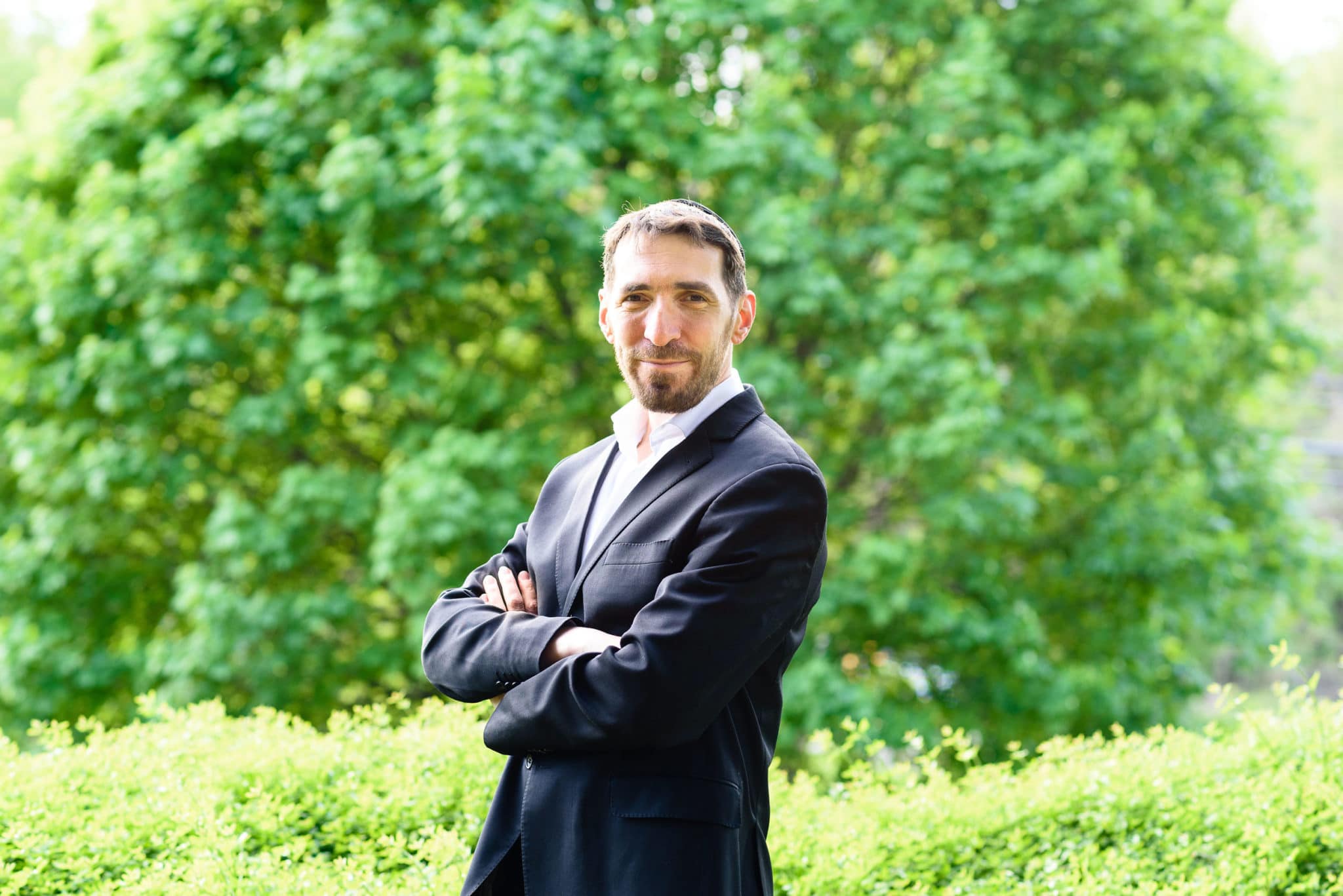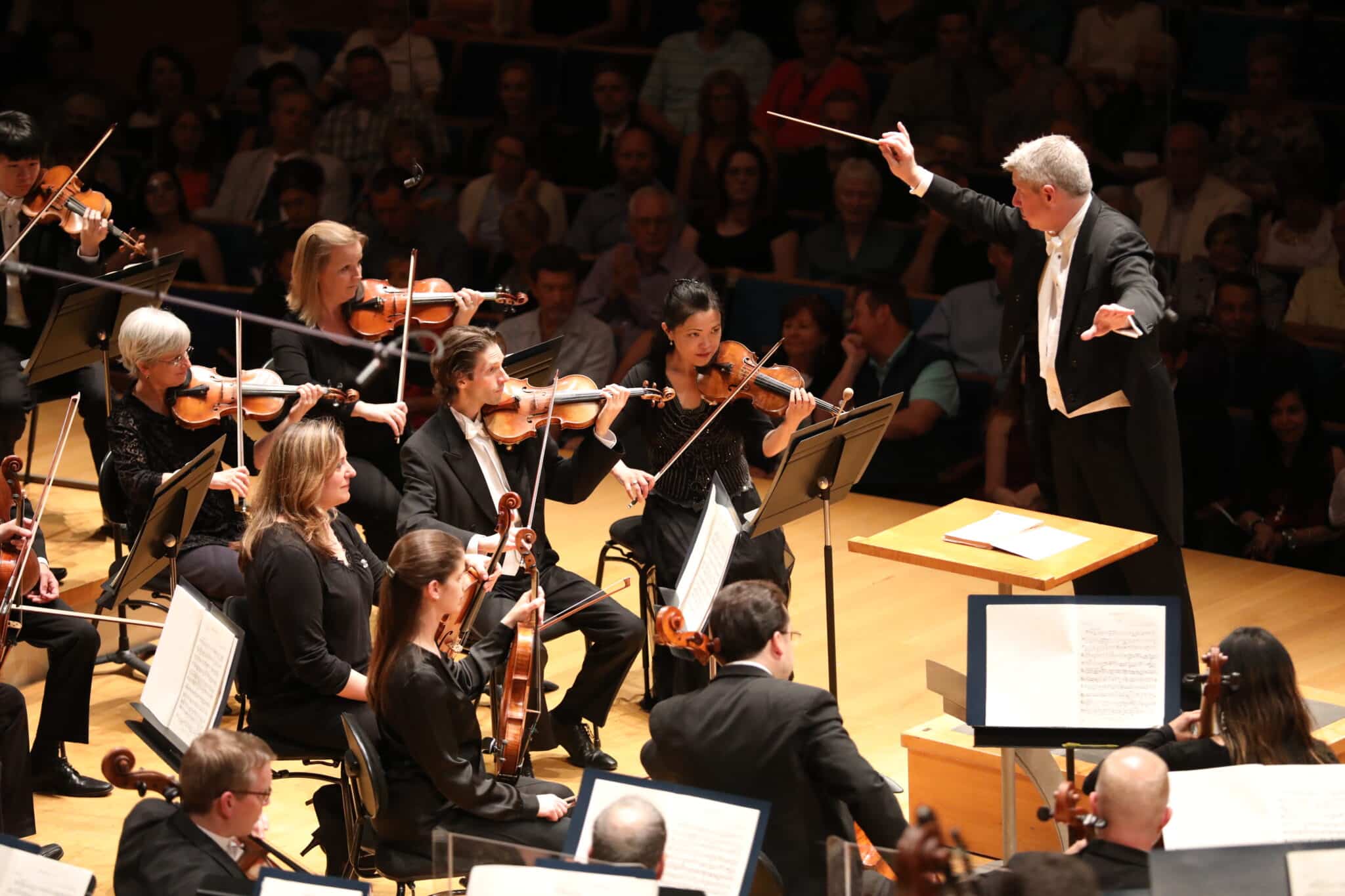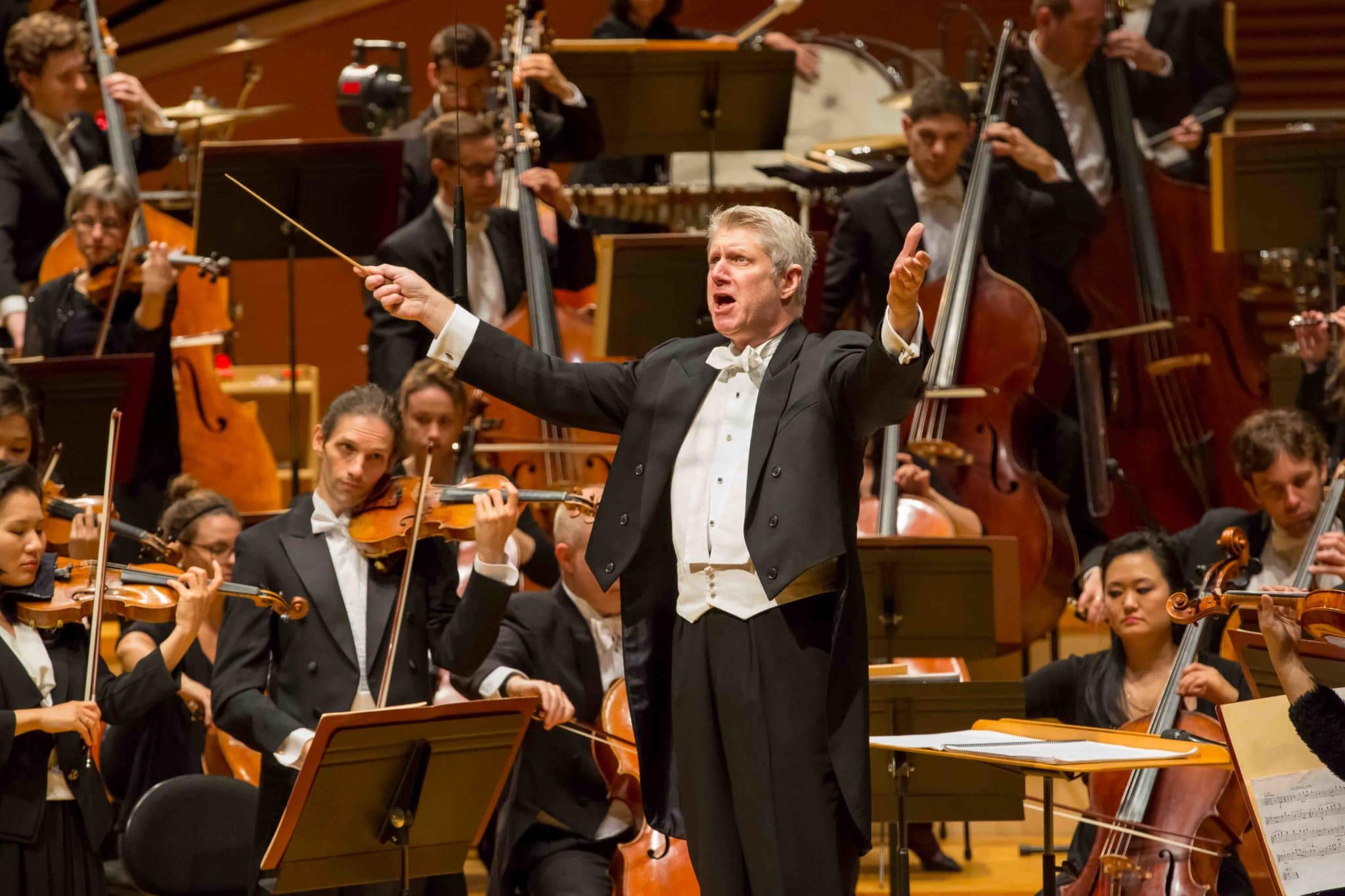KC STAR: KC Symphony concert is ‘unique expression of the soloist and orchestra.’
November 20, 2019

BY PATRICK NEAS SPECIAL TO THE STAR | NOVEMBER 15, 2019
It’s a given that most music makes beautiful sounds. But for those truly listening, it can also convey profound spirituality and exalted philosophy.
The Kansas City Symphony, conducted by Michael Stern, will perform music that reaches for the stars Nov. 22 through 24 at Helzberg Hall. The program will include works by Gustav Mahler, Richard Strauss and the world premiere of a piano concerto by Jonathan Leshnoff that was commissioned by the Kansas City Symphony.
Starting off the program is the adagio from Mahler’s unfinished Symphony No. 10. Mahler began writing the symphony when his heart was breaking, figuratively and literally. He had been diagnosed with heart disease and he learned his wife, Alma, had an affair with the architect Walter Gropius.
“Mahler did not know it was going to be his last piece,” Michael Stern said. “He knew he was sick, but he was asking the eternal questions. I put this program together with the Leshnoff at its core because Jonathan’s music is always mystical and seeking answers.
“And ‘Also Sprach Zarathustra,’ with all of the Nietzsche behind it, is also seeking. You can argue that Strauss is slightly more theatrical than Mahler or Leshnoff, but at its core the music is still grappling with the big questions.”
The film director Stanley Kubrick brilliantly used the opening fanfare from “Zarathustra” in his film “2001: A Space Odyssey,” a mystical work in its own right. Leshnoff says he is pleased with the pieces Stern has chosen to accompany his piano concerto.
“Mahler is a melodic hero of mine,” Leshnoff said. “I’ve always been blown away by how he can make a melody move and stretch very slowly, very passionately. Indeed, in the second movement of my concerto, which is spacious and expanding and lyrical, I looked to Mahler for inspiration. So I think it’s a very nice pairing.”
Like most of his music, Leshnoff says his piano concerto is imbued with concepts from Kabbalah. Leshnoff says that the second movement is a musical evocation of the Kabbalah concept of “neshama” or soul.
“The Kabbalah speaks of five levels of a soul, from all the way down to the fact that something exists all the way to the highest point of actualization.”
Leshnoff says that according to the Kabbalah, the soul has three levels; the lower focus on action and speech. Neshama, the third level of the soul, deals with thought.
“So the second movement of this piano concerto represents neshama, and it’s a very, very slow movement, very sparse. And the only way (for it) to come to life is through the unique expression of the soloist and orchestra.”
On paper, Leshnoff says, the piece wouldn’t look intricate.
But he wrote it so that if people “tap into that…. suddenly these dry half-notes, these dry whole-notes suddenly take shape and life and a form of their own.”
So how can one listen to the concerto to grasp this meaning and bring the notes to life?
“On the one hand, I could tell people all of this, on the other hand, if I let them react the way they would react on their own, that’s their neshama.
“To me it’s more precious if someone comes away with their own conclusions because then you come away with things that are meaningful to you, and someone else comes away with things that are meaningful to them.”
Leshnoff often speaks of self-actualization. For him, self-actualization comes down to living out your full potential.
“No one told me to be a composer,” Leshnoff said. “I was given a talent, but I could have done anything I wanted…. I’m a firm believer that everyone and everything has a place in the universe and that we are all becoming our actual selves, and that requires work and effort, but eventually you can actualize the potential that you have.”
The Grammy-nominated pianist Joyce Yang will be the soloist for Leshnoff’s concerto.
“Jonathan specifically had Joyce in mind for this concerto,” Stern said. “She is such a formidable pianist, and we love having her anyway. It’s a triple whammy. We have Jonathan, who is a great friend, writing the piece and we have Joyce, who’s a great friend, playing the piece and it’s a world premiere, which is really nice. We’ll figure it all out together.”
8 p.m. Nov. 22 and 23 and 2 p.m. Nov. 24. Helzberg Hall, Kauffman Center for the Performing Arts. $25-$88. 816-471-0400 or www.kcsymphony.org.
Read the full article on The Star website.
Related Posts

06/18/24
Michael Stern’s Final Concert as Music Director at the Kansas City Symphony to be Streamed Live on medici.tv

03/28/23
Upcoming 2023/24 Season is Michael Stern’s Final Season as Music Director

01/31/23